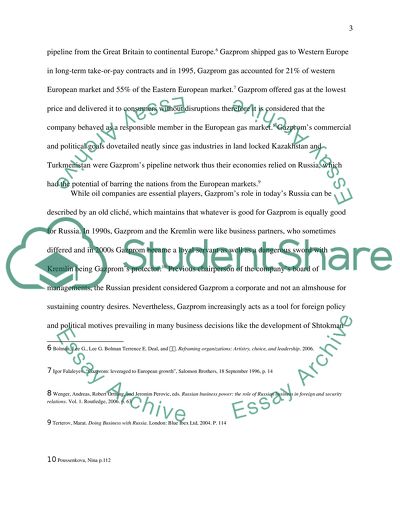Cite this document
(“Corporate Strategy:Gazprom - Paradoxes Essay Example | Topics and Well Written Essays - 1750 words”, n.d.)
Corporate Strategy:Gazprom - Paradoxes Essay Example | Topics and Well Written Essays - 1750 words. Retrieved from https://studentshare.org/marketing/1479638-corporate-strategygazprom-paradoxes
Corporate Strategy:Gazprom - Paradoxes Essay Example | Topics and Well Written Essays - 1750 words. Retrieved from https://studentshare.org/marketing/1479638-corporate-strategygazprom-paradoxes
(Corporate Strategy:Gazprom - Paradoxes Essay Example | Topics and Well Written Essays - 1750 Words)
Corporate Strategy:Gazprom - Paradoxes Essay Example | Topics and Well Written Essays - 1750 Words. https://studentshare.org/marketing/1479638-corporate-strategygazprom-paradoxes.
Corporate Strategy:Gazprom - Paradoxes Essay Example | Topics and Well Written Essays - 1750 Words. https://studentshare.org/marketing/1479638-corporate-strategygazprom-paradoxes.
“Corporate Strategy:Gazprom - Paradoxes Essay Example | Topics and Well Written Essays - 1750 Words”, n.d. https://studentshare.org/marketing/1479638-corporate-strategygazprom-paradoxes.


